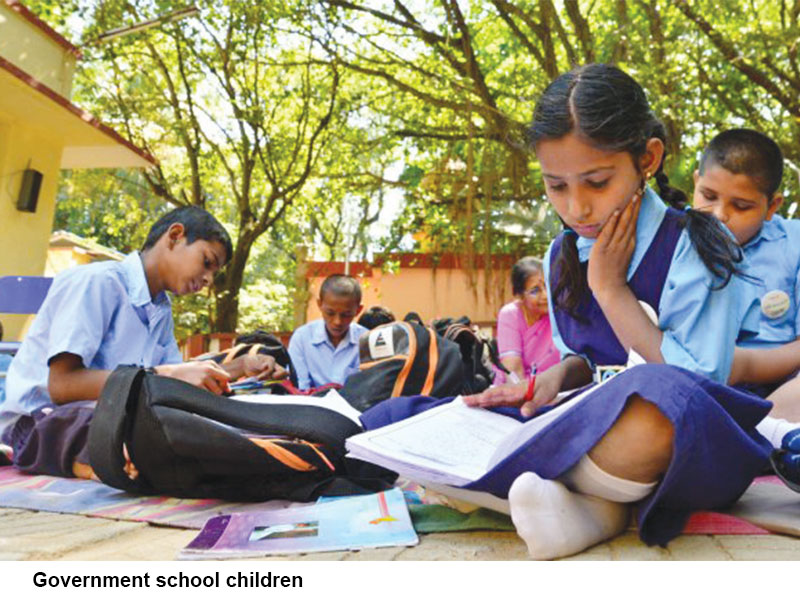
In July 2018, a Congress-JDS coalition government led by chief minister H.D. Kumaraswamy which ruled the state for 14 months (May 2018-July 2019) introduced this initiative with effect from June this year. Given the precarious condition of the state’s finances (fiscal deficit: Rs.42,000 crore in 2019-20), the department of public instruction (DPI) was directed to train the required 1,000 teachers from the host schools in English language proficiency over two-three months to teach in class I of the English-medium sections. With just seven months for the next academic year to begin, the DPI has to urgently identify another 1,000 teachers for training as the already recruited teachers will move to class II with their students.
In the state’s 45,000 government primaries (class I-VIII), children have been exclusively educated in the Kannada medium since 1994 when a government order to this effect was passed by the then Congress government. Despite a three-judge Karnataka high court 2008 order which ruled that parents of school children have the right to choose the medium of instruction, which was upheld by a five-judge bench of the Supreme Court in 2014, the language lobby and Kannada Development Authority (KDA) continued to oppose English medium, and even teaching of English as a subject. Kumaraswamy’s initiative decreed that bottom-of-pyramid household children should be given equal opportunity to learn English, the language of business and commerce in India and the world.
Inevitably, this overdue proposal was opposed by the Kannada language lobby and KDA whose chairperson is endowed with cabinet minister status. Yet, it’s hardly a state secret that the real motivation behind the language lobby is bagging Kannada textbooks writing and printing contracts as also teaching jobs for kith and kin. Therefore, for over a quarter-century, during which millions of children have been denied English language learning, KDA has been stridently opposing the introduction of English even as a subject, let alone medium of instruction, ruining the employment options of an entire generation of Karnataka-born citizens.
The outcome of persistent denial of English language learning to underprivileged but aspirational households, has been the rise of the private budget schools (PBS) phenomenon. These are affordable schools which offer — or claim to offer — English medium education and English language proficiency. Many — if not most — of the PBS are ‘unrecognised’ by the state government but are functioning because Karnataka’s infamously venal school inspectors are bribed to overlook their grave sin of meeting public demand for English language education. Yet the threat of closure always hangs over them because s.19 of the Right to Education (RTE) Act 2009, prescribes minimum infrastructure norms with which they are not compliant. Currently, an estimated 13,000 PBS, with an aggregate enrolment of 3.5 million children, are operational within the state (pop.63 million).
A quarter-century after Kannada was decreed as the medium of instruction in all greenfield primaries, especially government schools, and with millions of government school leavers trapped in low-end jobs, it’s becoming increasingly clear that this mess in Karnataka’s public school system is the natural consequence of the ham-fisted interference and denial of autonomy to government schools which are regarded as employment exchanges for the under-qualified kith and kin of politicians and bureaucrats. The decree to finally provide English — even if not English medium — education to the majority of the state’s 5 million children trapped in 45,000 government schools is a case of too little and too late.
Comments Prof. Ravinarayan Chakrakodi of the Regional Institute of English, Bangalore, which is preparing 1,000 government school teachers to become sufficiently proficient in English: “The introduction of English medium in government schools requires induction of graduates with adequate English language proficiency and strong pedagogical orientation. The problem is that there just aren’t enough teachers within the government school system who are competent enough to teach in English.”
Shraddha Goled (Bangalore)